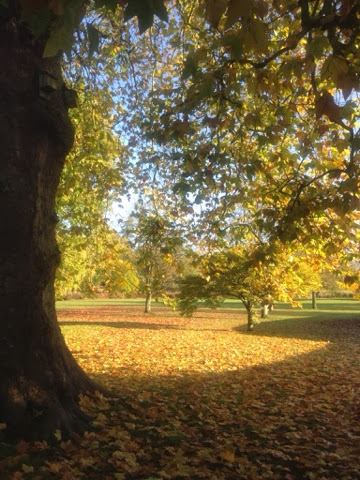I'm called Patrick for a reason, a very special reason.
My grandfather, Captain Albert Marsh, asked my mother, his eldest daughter, to call her first child Patrick or Patricia, after the Saint's Day.
This is why.
Captain Marsh was born in St Anthony-in-Roseland in the late 1800s and grew up to be a sailor. He was a merchant seaman during the First World War and was a junior officer on the crew of the "Tara" taking coal to troops in North Africa via Alexandria in Egypt. It was very dangerous work. The Mediterranean was constantly patrolled by German U-boats targeting the Allies' supply vessels. Merchant vessels were only lightly armed and certainly no match for the U-boats.
One day the "Tara" was torpedoed by a U-boat and sank rapidly, leaving many of the crew struggling to survive in the water. Having sunk the coal ship, the captain of the U-boat brought his submarine to the surface and set about rescuing as many of its crew as possible. He explained to the cold exhausted 'Tara' sailors that he could not do more than take them to the nearest shore and turn them over to the local Arab inhabitants, a tribe called the Senussi.
The Senussi marched them off far into the desert and well away from the coast, to minimise their chances of escape and any means of sending messages. My 'Tara' crew suffered terrible hardships during this painful trek as they grew ever more weak, exhausted and sick. Some of them died along the way and were buried where they fell.
Survivors were reduced to eating the meagre rations put their way by their captors, plus whatever they could find in the desert, including even snails. After days of forced marching they eventually were led to a small, muddy waterhole marked by a lone fig tree, over a hundred miles out in the desert.
It was a truly desperate and seemingly hopeless situation.
Days and weeks went by, and the situation grew grimmer.
Then, one morning, the men woke to find that their Arab guards had silently abandoned them during the night. They were now alone, sick and starving.
Meanwhile, unknown to them, the Allies were advancing. Persistent rumours had got to them that there were a group of seamen abandoned out in the desert somewhere, most likely dead by now. Nevertheless, the British Army decided mount a rescue mission, just in case. It was led by the Duke of Westminster. He set off across the desert with forty armoured cars on his dramatic mission. Was their information true? If so, what was the likelihood of finding the men alive? How could they possibly find this tiny oasis with one fig tree in this vast desert? Did it even exist?
Despite the doubts, they went. This quote from the book "Prisoners of the Red Desert" by R.S. Gwatkin-Williams describes it well ...
"The fool journey, the knight-errant adventure on the hundred to one chance, had begun!"
They set off at 3am, into the desert. The two Arab guides they took with them appeared confident at first. Everything appeared to be going well, if only painfully slowly. Stoppages to repair punctures and breakdowns meant that they only averaged about twelve miles per hour. But they pressed on, further and further into the stony hot sands. Sixty, seventy, eighty miles, and still no sign of the lone fig tree which would tell them they'd found their destination.
By now the guides were no longer so confident. They were arguing with each other and couldn't agree on which way to go. But, at the Duke's insistence, the convoy pressed on.
A hundred miles, a hundred and ten; by now the officers were warning the Duke that they'd used half their fuel and needed to turn back to be sure of reaching base. However, as the book describes, the Duke was "bloody minded" that day and said that they had two choices. Either camp where they were for the night and send some cars back to base for more fuel, or carry on further. Reluctantly it was decided to press on. They had passed one hundred and fifteen miles when suddenly one of the guides, Achmed, an old man with one eye, spotted what nobody else could see.
The fig tree.
He leapt from the vehicle and began running towards it.
The water hole had dried up. Only the fig tree and some rough graves remained, but at least he now was sure of where they were. Confidence returned and the expedition raced forward, on and on for another twelve or more miles. Then suddenly they stopped.
As they rounded a dune, what appeared to be a large tented village lay before them. They prepared for possible resistance and slowly advanced. Suddenly the 'village' dissolved into a few ragged shelters and a faint British cheer was heard.
The mission was a success.
It was 3pm in the afternoon of St Patrick's Day, 1916.
My grandfather and his remaining colleagues were rescued.
And that is why I am called Patrick.










































